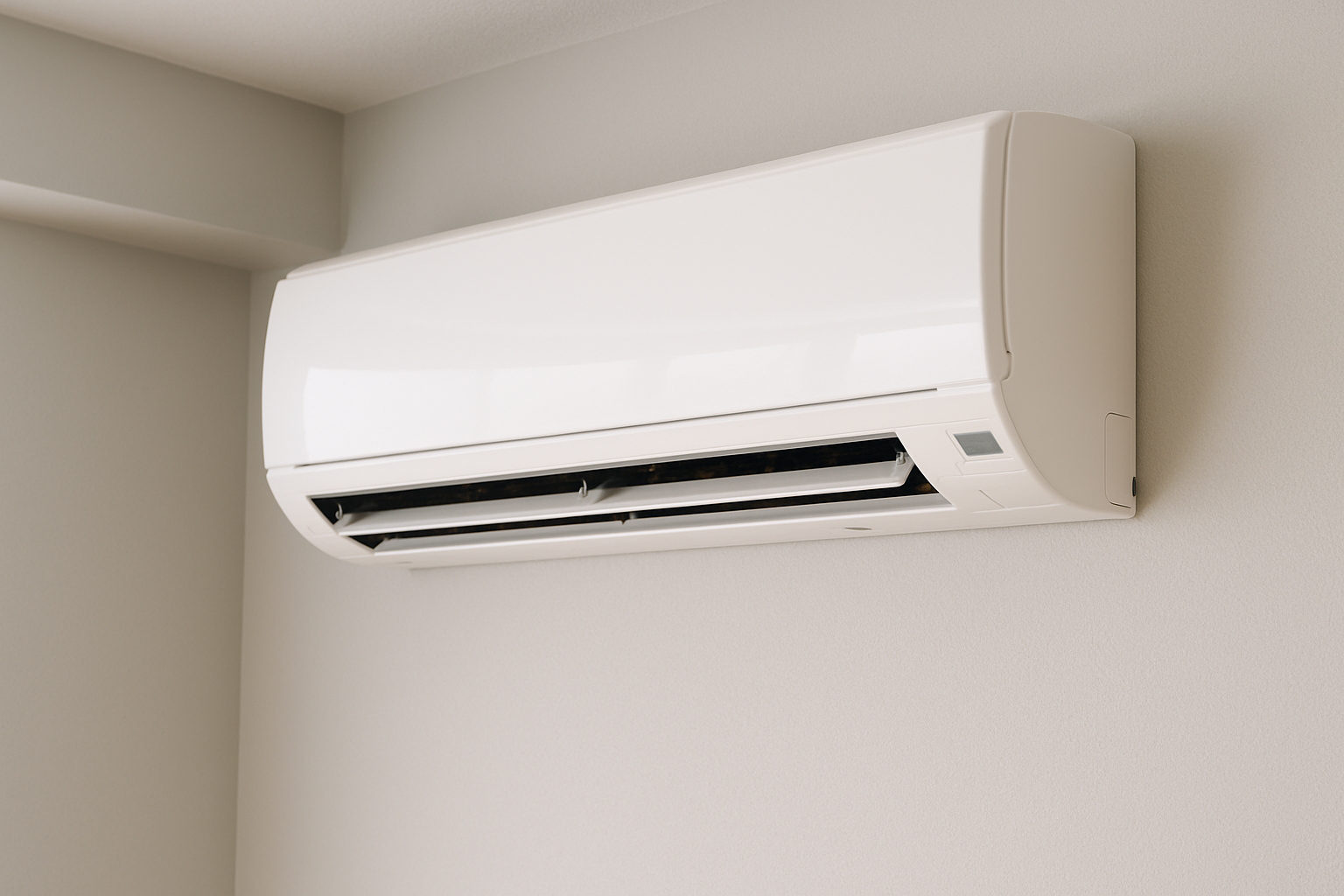Hot weather can cause babies to develop heat rash, dehydration, fussiness, high fever, and fatigue. Newborns have immature immune systems and limited ability to regulate their body temperature. Doctor Nguyen Van Toan, from the Neonatal Department of Tam Anh General Hospital in Hanoi, advises families using air conditioning to ensure safe practices to prevent respiratory infections, dry skin, nasal congestion, and pneumonia.
The ideal room temperature for newborns using air conditioning is 26-28°C. This helps prevent dry noses and breathing difficulties. Parents should avoid setting the temperature below 25°C. For premature or low-weight babies, the temperature may need to be adjusted higher, with close monitoring.
Even at a suitable temperature, direct airflow from the air conditioner (especially to the head, face, and chest) can chill a baby. Parents should position the crib or bassinet away from direct airflow or use a wind deflector. The minimum distance between the baby and the air conditioner should be 2 m.
 |
Parents should not let the air conditioner blow directly on the baby. Image generated by AI. |
Dress babies in lightweight, breathable clothing, such as thin, long-sleeved cotton outfits. A thin hat and socks can be used if necessary, but avoid overdressing, which can lead to sweating and subsequent chills.
Air conditioning dries out the air, which can affect a baby's respiratory system and skin. Doctor Toan recommends placing a bowl of water in the room or using a humidifier to maintain a humidity level of 50-60%. Avoid humidity levels above 65% to prevent mold growth.
Air conditioner filters accumulate dust, bacteria, and mold, which can cause respiratory illnesses in babies. Clean the filter every two weeks and have the unit serviced every 3-6 months to ensure clean air.
Avoid constantly switching the air conditioner on and off. This creates significant temperature fluctuations, making it difficult for a baby's body to adjust. Maintain a stable temperature and use the timer or "sleep" mode if available.
Don't keep babies in an air-conditioned room 24/7. Open windows or turn off the air conditioner several times a day to circulate the air, let in natural light, and reduce the risk of bacterial buildup.
Sudden temperature changes can cause colds or heat shock in newborns. Before taking a baby out of an air-conditioned room, turn off the air conditioner and open the windows to gradually acclimate the baby to the outside temperature. Dress the baby in a light jacket if needed, especially in the early morning or evening. If you must take the baby outside immediately, wrap them in a thin blanket or jacket to minimize the abrupt change in environment.
If a baby exhibits symptoms such as a persistent cough, fever, wheezing, nasal congestion, refusal to feed, lethargy, or difficulty breathing, seek medical attention. Some cases of pneumonia in newborns, caused by improper air conditioner use, may have subtle symptoms that are easily missed.
Thanh Ba
| Readers can submit questions about children's health here for doctors to answer. |












